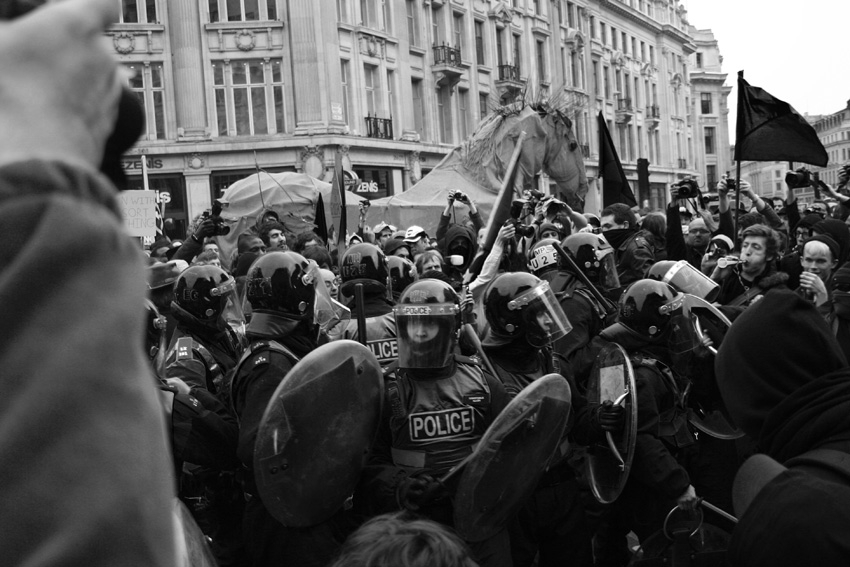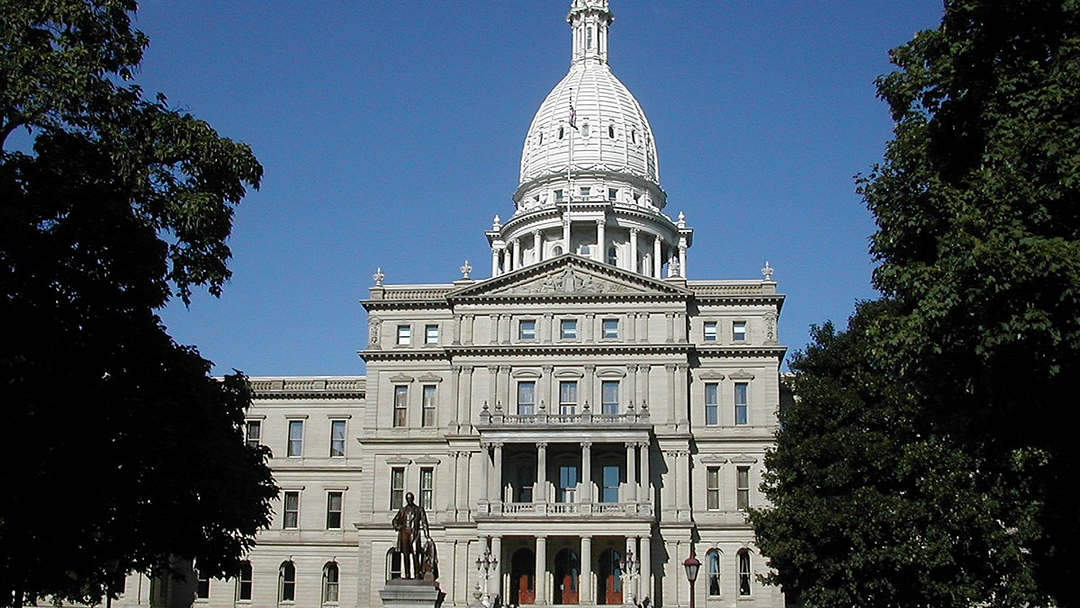| Document | Type | Description |
| Section 30.401 | Section | Short title. |
| | Sec. 1. This act shall be known and may be cited as the “emergency management act”. |
| Section 30.402 | Section | Definitions. |
| | 30.402 Definitions. Sec. 2. As used in this act: (a) “Chief executive official” means: (i) In the case of a county with an elected county executive, the county executive. (ii) In the case of a county without an elected county executive, the chairperson of the county board of commissioners, or the appointed administrator designated by appropriate enabling legislation. (iii) In the case of a city, the mayor or the individual specifically identified in the municipal charter. (iv) In the case of a township, the township supervisor. (v) In the case of a village, the village president or the individual specifically identified in the village charter. (b) “Council” means the Michigan emergency management advisory council. (c) “Department” means the department of state police. (d) “Director” or “state director of emergency management” means the director of the department of state police or his or her designee. (e) “Disaster” means an occurrence or threat of widespread or severe damage, injury, or loss of life or property resulting from a natural or human-made cause, including, but not limited to, fire, flood, snowstorm, ice storm, tornado, windstorm, wave action, oil spill, water contamination, utility failure, hazardous peacetime radiological incident, major transportation accident, hazardous materials incident, epidemic, air contamination, blight, drought, infestation, explosion, or hostile military action or paramilitary action, or similar occurrences resulting from terrorist activities, riots, or civil disorders. (f) “Disaster relief forces” means all agencies of state, county, and municipal government, private and volunteer personnel, public officers and employees, and all other persons or groups of persons having duties or responsibilities under this act or pursuant to a lawful order or directive authorized by this act. (g) “District coordinator” means the state police emergency management division district coordinator. (h) “Emergency” means any occasion or instance in which the governor determines state assistance is needed to supplement local efforts and capabilities to save lives, protect property and the public health and safety, or to lessen or avert the threat of a catastrophe in any part of the state. (i) “Emergency management coordinator” means a person appointed pursuant to section 9 to coordinate emergency management within the county or municipality. Emergency management coordinator includes a civil defense director, civil defense coordinator, emergency services coordinator, emergency program manager, or other person with a similar title and duties. (j) “Local state of emergency” means a proclamation or declaration that activates the response and recovery aspects of any and all applicable local or interjurisdictional emergency operations plans and authorizes the furnishing of aid, assistance, and directives under those plans. (k) “Michigan emergency management plan” means the plan prepared and maintained by the emergency management division of the department and signed by the governor. (l) “Municipality” means a city, village, or township. (m) “Person” means an individual, partnership, corporation, association, governmental entity, or any other entity. (n) “Political subdivision” means a county, municipality, school district, or any other governmental unit, agency, body, board, or commission which is not a state department, board, commission, or agency of state government. (o) “Rule” means a rule promulgated pursuant to the administrative procedures act of 1969, Act No. 306 of the Public Acts of 1969, being sections 24.201 to 24.328 of the Michigan Compiled Laws. (p) “State of disaster” means an executive order or proclamation that activates the disaster response and recovery aspects of the state, local, and interjurisdictional emergency operations plans applicable to the counties or municipalities affected. (q) “State of emergency” means an executive order or proclamation that activates the emergency response and recovery aspects of the state, local, and interjurisdictional emergency operations plans applicable to the counties or municipalities affected. |
| Section 30.403 | Section | Responsibility of governor; executive orders, proclamations, and directives; declaration, duration, and termination of state of disaster or state of emergency; contents and dissemination of executive order or proclamation. |
| | 30.403 Responsibility of governor; executive orders, proclamations, and directives; declaration, duration, and termination of state of disaster or state of emergency; contents and dissemination of executive order or proclamation. Sec. 3. (1) The governor is responsible for coping with dangers to this state or the people of this state presented by a disaster or emergency. (2) The governor may issue executive orders, proclamations, and directives having the force and effect of law to implement this act. Except as provided in section 7(2), an executive order, proclamation, or directive may be amended or rescinded by the governor. (3) The governor shall, by executive order or proclamation, declare a state of disaster if he or she finds a disaster has occurred or the threat of a disaster exists. The state of disaster shall continue until the governor finds that the threat or danger has passed, the disaster has been dealt with to the extent that disaster conditions no longer exist, or until the declared state of disaster has been in effect for 28 days. After 28 days, the governor shall issue an executive order or proclamation declaring the state of disaster terminated, unless a request by the governor for an extension of the state of disaster for a specific number of days is approved by resolution of both houses of the legislature. An executive order or proclamation issued pursuant to this subsection shall indicate the nature of the disaster, the area or areas threatened, the conditions causing the disaster, and the conditions permitting the termination of the state of disaster. An executive order or proclamation shall be disseminated promptly by means calculated to bring its contents to the attention of the general public and shall be promptly filed with the emergency management division of the department and the secretary of state, unless circumstances attendant upon the disaster prevent or impede its prompt filing. (4) The governor shall, by executive order or proclamation, declare a state of emergency if he or she finds that an emergency has occurred or that the threat of an emergency exists. The state of emergency shall continue until the governor finds that the threat or danger has passed, the emergency has been dealt with to the extent that emergency conditions no longer exist, or until the declared state of emergency has been in effect for 28 days. After 28 days, the governor shall issue an executive order or proclamation declaring the state of emergency terminated, unless a request by the governor for an extension of the state of emergency for a specific number of days is approved by resolution of both houses of the legislature. An executive order or proclamation issued pursuant to this subsection shall indicate the nature of the emergency, the area or areas threatened, the conditions causing the emergency, and the conditions permitting the termination of the state of emergency. An executive order or proclamation shall be disseminated promptly by means calculated to bring its contents to the attention of the general public and shall be promptly filed with the emergency management division of the department and the secretary of state, unless circumstances attendant upon the emergency prevent or impede its prompt filing.
History: 1976, Act 390, Imd. Eff. Dec. 30, 1976 ;– Am. 1990, Act 50, Imd. Eff. Apr. 6, 1990 ;– Am. 2002, Act 132, Eff. May 1, 2002 |
| Section 30.404 | Section | Effect of executive order or proclamation of state of disaster or state of emergency; federal assistance; reciprocal aid agreement or compact; appropriation. |
| | 30.404 Effect of executive order or proclamation of state of disaster or state of emergency; federal assistance; reciprocal aid agreement or compact; appropriation. Sec. 4. (1) An executive order or proclamation of a state of disaster or a state of emergency shall serve to authorize the deployment and use of any forces to which the plan or plans apply and the use or distribution of supplies, equipment, materials, or facilities assembled or stockpiled pursuant to this act. (2) Upon declaring a state of disaster or a state of emergency, the governor may seek and accept assistance, either financial or otherwise, from the federal government, pursuant to federal law or regulation. (3) The governor may, with the approval of the state administrative board, enter into a reciprocal aid agreement or compact with another state, the federal government, or a neighboring state or province of a foreign country. A reciprocal aid agreement shall be limited to the furnishing or exchange of food, clothing, medicine, and other supplies; engineering services; emergency housing; police services; the services of the national guard when not mobilized for federal service or state defense force as authorized by the Michigan military act, Act No. 150 of the Public Acts of 1967, as amended, being sections 32.501 to 32.851 of the Michigan Compiled Laws, and subject to federal limitations on the crossing of national boundaries by organized military forces; health, medical, and related services; fire fighting, rescue, transportation, and construction services and equipment; personnel necessary to provide or conduct these services; and other necessary equipment, facilities, and services. A reciprocal aid agreement shall specify terms for the reimbursement of costs and expenses and conditions necessary for activating the agreement. The legislature shall appropriate funds to implement a reciprocal aid agreement.
History: 1976, Act 390, Imd. Eff. Dec. 30, 1976 ;– Am. 1990, Act 50, Imd. Eff. Apr. 6, 1990 |
| Section 30.405 | Section | Additional powers of governor; prohibition; disobeying or interfering with rule, order, or directive as misdemeanor. |
| | 30.405 Additional powers of governor; prohibition; disobeying or interfering with rule, order, or directive as misdemeanor. Sec. 5. (1) In addition to the general authority granted to the governor by this act, the governor may, upon the declaration of a state of disaster or a state of emergency do 1 or more of the following
(a) Suspend a regulatory statute, order, or rule prescribing the procedures for conduct of state business, when strict compliance with the statute, order, or rule would prevent, hinder, or delay necessary action in coping with the disaster or emergency. This power does not extend to the suspension of criminal process and procedures.
(b) Utilize the available resources of the state and its political subdivisions, and those of the federal government made available to the state, as are reasonably necessary to cope with the disaster or emergency.
(c) Transfer the direction, personnel, or functions of state departments, agencies, or units thereof for the purpose of performing or facilitating emergency management.
(d) Subject to appropriate compensation, as authorized by the legislature, commandeer or utilize private property necessary to cope with the disaster or emergency.
(e) Direct and compel the evacuation of all or part of the population from a stricken or threatened area within the state if necessary for the preservation of life or other mitigation, response, or recovery activities.
(f) Prescribe routes, modes, and destination of transportation in connection with an evacuation.
(g) Control ingress and egress to and from a stricken or threatened area, removal of persons within the area, and the occupancy of premises within the area.
(h) Suspend or limit the sale, dispensing, or transportation of alcoholic beverages, explosives, and combustibles.
(i) Provide for the availability and use of temporary emergency housing.
(j) Direct all other actions which are necessary and appropriate under the circumstances.
(2) Subsection
(1) does not authorize the seizure, taking, or confiscation of lawfully possessed firearms or ammunition. (3) A person who willfully disobeys or interferes with the implementation of a rule, order, or directive issued by the governor pursuant to this section is guilty of a misdemeanor.
History: 1976, Act 390, Imd. Eff. Dec. 30, 1976 ;– Am. 1990, Act 50, Imd. Eff. Apr. 6, 1990 ;– Am. 2006, Act 545, Imd. Eff. Dec. 29, 2006 |
| Section 30.406 | Section | Obligation of person within state; compensation for services or property; record; claims; exceptions. |
| | 30.406 Obligation of person within state; compensation for services or property; record; claims; exceptions. Sec. 6. (1) All persons within this state shall conduct themselves and manage their affairs and property in ways that will reasonably assist and will not unreasonably detract from the ability of the state and the public to cope with the effects of a disaster or an emergency.
This obligation includes appropriate personal service and the use or restriction of the use of property in time of a disaster or an emergency.
This act neither increases nor decreases these obligations but recognizes their existence under the state constitution of 1963, the statutes, and the common law.
Compensation for services or for the taking or use of property shall be paid only if obligations recognized herein are exceeded in a particular case and only if the claimant has not volunteered his or her services or property without compensation.
(2) Personal services may not be compensated by the state, or a subdivision or agency of the state, except pursuant to statute, local law, or ordinance.
(3) Compensation for property shall be paid only if the property is taken or otherwise used in coping with a disaster or emergency and its use or destruction is ordered by the governor or the director.
A record of all property taken or otherwise used under this act shall be made and promptly transmitted to the office of the governor.
(4) A person claiming compensation for the use, damage, loss, or destruction of property under this act shall file a claim with the emergency management division of the department in the form and manner prescribed by the division.
(5) If a claimant refuses to accept the amount of compensation offered by the state, a claim may be filed in the state court of claims which court shall have exclusive jurisdiction to determine the amount of compensation due the owner.
(6) This section does not apply to or authorize compensation for either of the following:
(a) The destruction or damaging of standing timber or other property to provide a firebreak.
(b) The release of waters or the breach of impoundments to reduce pressure or other danger from actual or threatened flood. |
| Section 30.407 | Section | Powers and duties of director. |
| | |
| Section 30.407a | Section | Emergency management division; establishment; purpose; employees; emergency management plan; grants; powers of division; definition. |
| Section 30.408 | Section | Emergency management coordinator; employment or appointment; duties; annexes to emergency management plan; cooperation of state agencies. |
| Section 30.409 | Section | Emergency management coordinator; appointment; duties; eligibility. |
| Section 30.410 | Section | Powers of county and municipality; mutual aid or reciprocal aid agreements or compacts; assistance of emergency management coordinator. |
| Section 30.411 | Section | Powers and duties of personnel of disaster relief forces; liability for personal injury or property damage; right to benefits or compensation; disaster relief workers; immunity; liability and legal obligation of persons owning or controlling real estate or other premises used for shelter; “gross negligence” defined. |
| Section 30.411a | Section | Disaster or emergency relief assistance provided by state employee; unpaid leave of absence; leave of absence with pay; conditions; limitation. |
| Section 30.412 | Section | Disaster or emergency occurring in county or municipality; procedure; ordinances or rules. |
| Section 30.413 | Section | Repealed. 1990, Act 50, Imd. Eff. Apr. 6, 1990. |
| Section 30.414 | Section | Assessment of disaster or emergency; findings and recommendations; notice; temporary assistance; action by governor. |
| Section 30.415 | Section | Repealed. 2002, Act 132, Eff. May 1, 2002. |
| Section 30.416 | Section | Declaration of emergency or major disaster by president; federal grants; agreement pledging state’s share. |
| Section 30.417 | Section | Construction of act. |
| Section 30.418 | Section | Disaster and emergency contingency fund; creation; administration; accounting; appropriation; carrying forward unexpended and unencumbered funds; expenditures; reimbursement; declaration; investment. |
| Section 30.419 | Section | Disaster and emergency contingency fund; expenditures when federal assistance unavailable; application for grant; resolution; rules. |
| Section 30.420 | Section | Repeal of MCL 30.221 to 30.233. |
| Section 30.421 | Section | Heightened state of alert; cause; powers of governor; violation as misdemeanor; penalty; civil action; definitions. |
| | 30.421 Heightened state of alert; cause; powers of governor; violation as misdemeanor; penalty; civil action; definitions. Sec. 21. (1) If good cause exists to believe that terrorists or members of a terrorist organization are within this state or that acts of terrorism may be committed in this state or against a vital resource, the governor may by executive order or proclamation declare a heightened state of alert and subsequently exercise the authority provided in section 3(2) and section 5(1)(b), (c), (e), (f), (g), (h), (i), and (j) in an effort to safeguard the interests of this state or a vital resource, to prevent or respond to acts of terrorism, or to facilitate the apprehension of terrorists or members of a terrorist organization and those acting in concert with them. However, in exercising the authority under section 5(1)(h), the governor shall not suspend or limit the sale, dispensing, or transportation of alcoholic beverages under this section. Within 7 days after declaring a heightened state of alert, the governor shall notify the majority leader and minority leader of the senate and the speaker and minority leader of the house of representatives of the declaration. The governor may utilize the services, facilities, and resources available under this act under a declared state of disaster or emergency. The exercise of those powers shall be consistent with the provisions of the state constitution of 1963 and the federal constitution and may continue until the heightened state of alert is no longer in effect. The heightened state of alert shall continue until the governor finds that the threat or danger has passed, the heightened state of alert has been dealt with to the extent that the heightened state of alert conditions no longer exist, or until the heightened state of alert has been in effect for 60 days. After 60 days, the governor shall terminate the heightened state of alert, unless a request by the governor for an extension of the heightened state of alert for a specific number of days is approved by resolution of both houses of the legislature. (2) A person shall not willfully disobey or interfere with the implementation of a rule, order, or directive issued by the governor under this section. A person who violates this section is guilty of a misdemeanor punishable by imprisonment for not more than 90 days or a fine of not more than $100.00, or both. Notwithstanding any provision in this section, a prosecuting agency shall not prosecute any person or seize any property for conduct presumptively protected by the first amendment to the constitution of the United States in a manner that violates any constitutional provision. (3) The attorney general or a prosecuting attorney may bring a civil action for damages or equitable relief to enforce the provisions of this act and the orders, rules, or regulations made in conformity with this act. (4) As used in this section: (a) “Act of terrorism” and “terrorist” mean those terms as defined in section 543b of the Michigan penal code, 1931 PA 328, MCL 750.543b. (b) “Terrorist organization” means that term as defined in section 543c of the Michigan penal code, 1931 PA 328, MCL 750.543c. (c) “Vital resource” means a public or private building, facility, property, function, or location, the protection of which is considered necessary to the public health, safety, and welfare and which the governor has designated, in writing, as a vital resource of this state.
History: Add. 2002, Act 132, Eff. May 1, 2002 |
| | |





